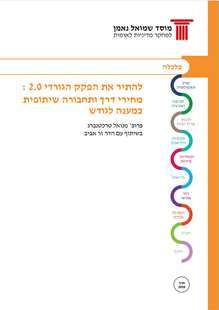Israel’s chronic traffic congestion has become one of its most pressing problems, with dire economic, environmental and psychological consequences. Following years of failed transportation policies, which overtly favored private over public transportation, it is clear that Israel needs an altogether different approach. We propose here a three-prong policy:
- Traffic demand management through an advanced system of road pricing, which entails the replacement of ineffective taxes on vehicles, for highly detailed levies per km. according to the time, route and number of passengers in the vehicle.
- A vast improvement in the supply of transportation alternatives, both of shared rides particularly for commuters in large employment centers, and of upgraded public transportation within urban centers, focusing on bus services.
- Leveraging advanced digital technologies and big data both for demand management and for the supply of attractive mobility alternatives.
The plan presented here is an update and extension of our previous policy paper “Undoing the Gordian knot – a transportation roadmap for the short run” (Trajtenberg and Pardo, 2018). Unlike often-mentioned proposals for massive investments in transport projects for the long run (such as the metro), our plan requires a rather small budget for its implementation, and can bring about substantial relief to congestion in the short run. In so doing it can make a significant contribution both to the quality of life in Israel, and to labour productivity in the near future, while retaining fiscal neutrality.












